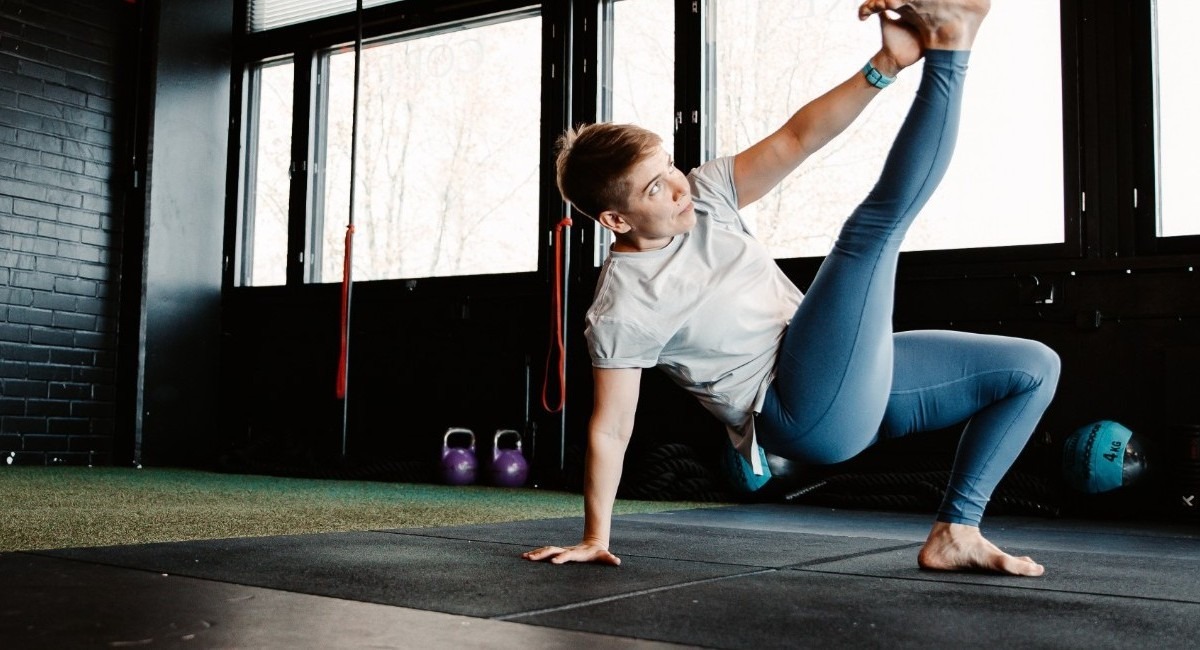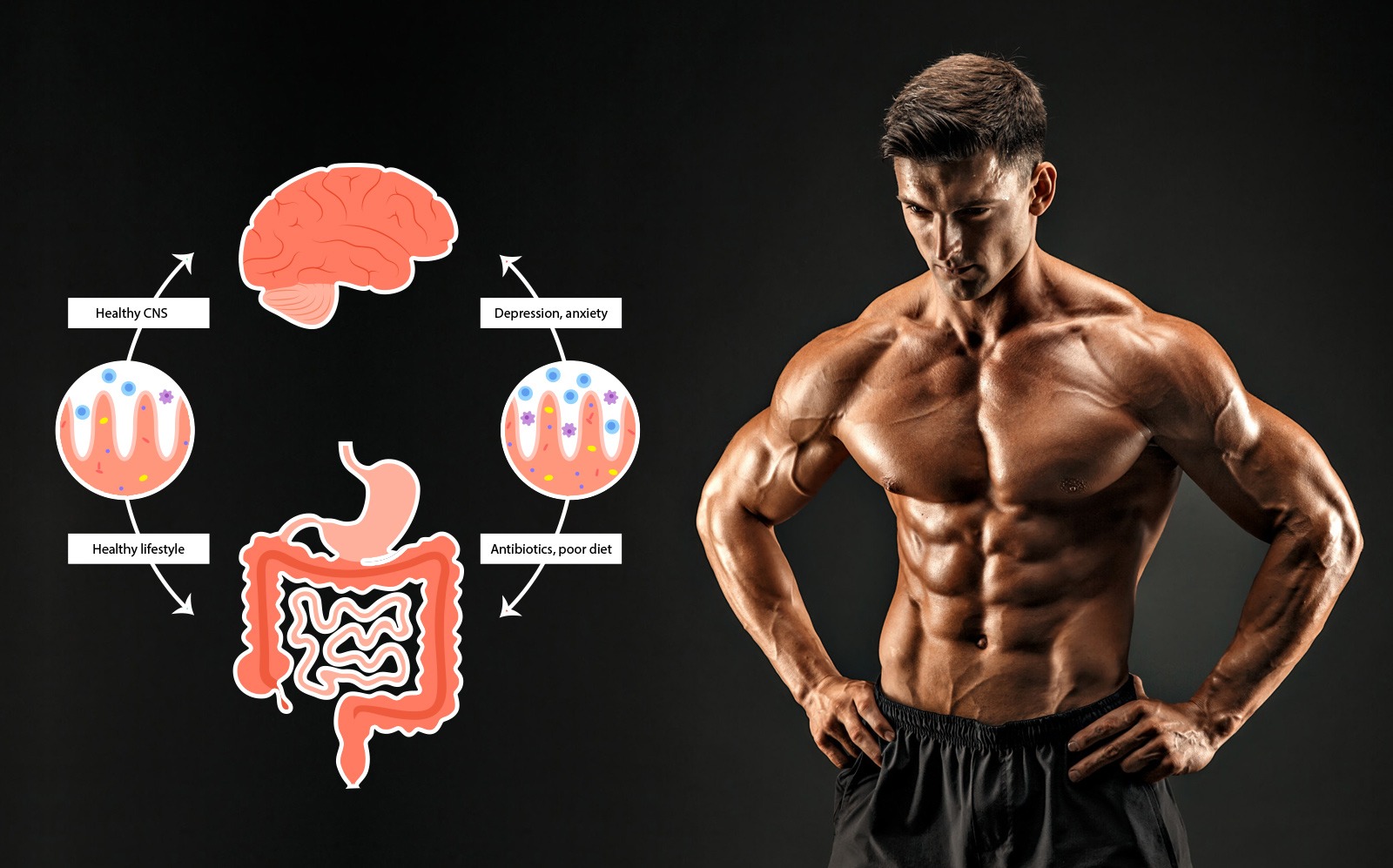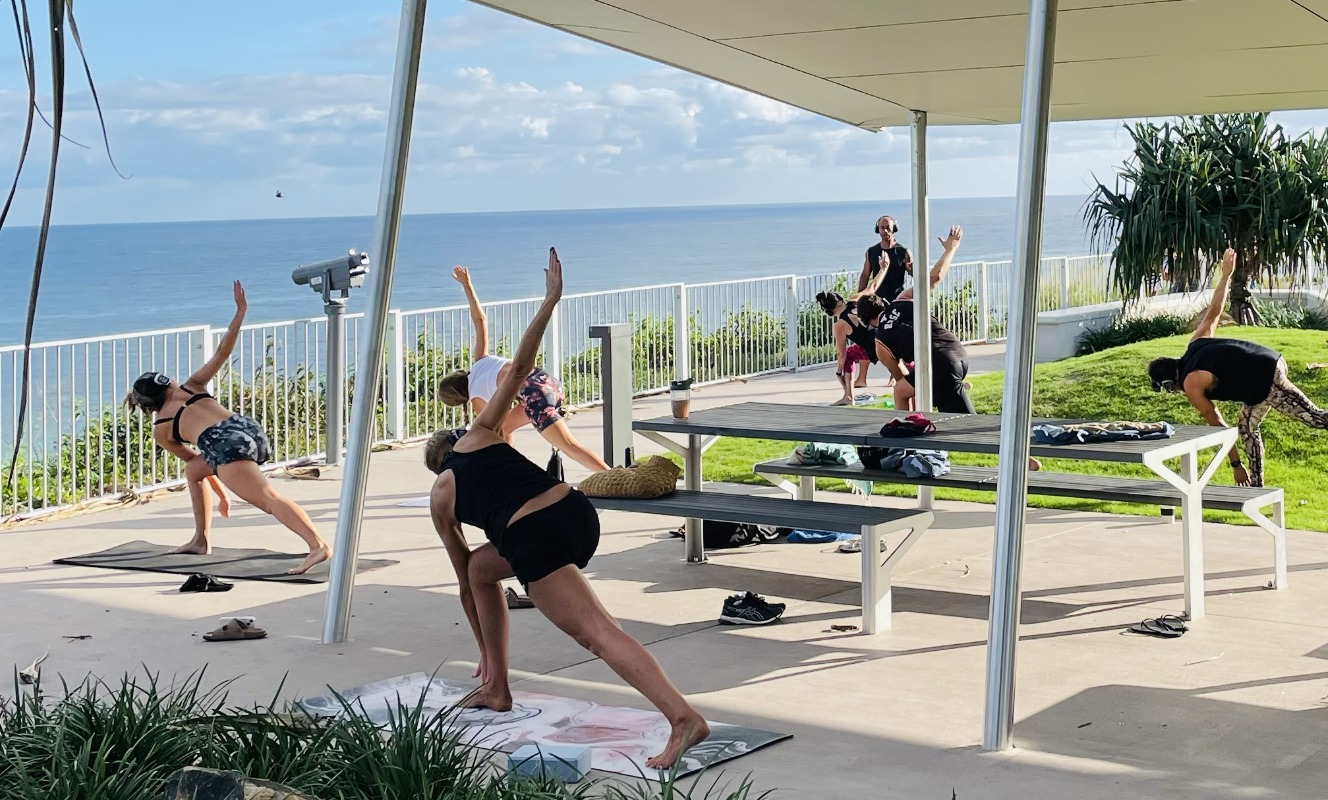
Self-Love and Fitness: Embracing Your Body While Working Towards Your Goals
Self-love and fitness go hand in hand, forming a powerful approach to health and well-being. Often, fitness journeys are fueled by the desire to "fix" perceived flaws, but true transformation happens when we shift the focus from punishing our bodies to nurturing them. Self-love in fitness means appreciating your body for what it can do while striving for realistic, meaningful goals.
💪 Fitness Guru
37 min read · 26, Feb 2025

Introduction:
In today's fast-paced world, the concept of fitness often gets entangled with unrealistic beauty standards and external validation. People chase the "perfect" body, thinking that achieving a certain weight, muscle definition, or shape will finally bring them happiness and self-worth. However, the true essence of fitness goes beyond mere physical appearances; it lies in nurturing a loving and compassionate relationship with your body. This is where the beautiful harmony between self-love and fitness comes into play.
Self-love and fitness are often seen as two separate concepts, but in reality, they are deeply interconnected. True fitness doesn’t just come from pushing your body to its limits; it blooms when you nurture both your physical and emotional well-being. Embracing your body while working towards your goals requires a delicate balance of self-acceptance and self-improvement — a journey that is as much about the mind and heart as it is about muscles and diets.
At the heart of self-love lies the belief that your worth is not dictated by your appearance, the number on a scale, or how many steps you take each day. It’s about recognizing that you are valuable simply because you exist. When you approach fitness from this mindset, the journey becomes less about punishing yourself for not being “good enough” and more about honoring your body for all that it does. Your legs carry you through your day, your arms hold the people you love, your heart beats tirelessly — these are all miracles worthy of gratitude.
Fitness, when rooted in self-love, shifts from being a battle against yourself to a form of self-care. Instead of working out to fit into a certain dress size or gain validation from others, you start exercising because it makes you feel strong, energized, and alive. You begin choosing foods not to shrink yourself but to nourish and fuel your body. This shift in perspective brings sustainable, long-term motivation because it’s driven by love, not fear or shame.
However, this doesn’t mean giving up on goals or growth. Loving yourself doesn’t mean you stop striving for better health, strength, or endurance — it means you pursue those goals without tying your self-worth to the outcome. You can want to lose weight, build muscle, or run a marathon while still embracing and respecting your body at every stage. The key is to set goals that are realistic, flexible, and rooted in self-care. Instead of “I have to lose 10 kg to be happy,” reframe it as “I want to feel lighter and more energetic so I can enjoy life more fully.”
One of the most powerful tools in balancing self-love and fitness is positive self-talk. The way you speak to yourself directly impacts your motivation and mental well-being. When you catch yourself thinking, “I’m so lazy for skipping the gym,” gently shift it to, “I needed rest today, and that’s okay. Tomorrow, I’ll move my body in a way that feels good.” This practice not only boosts your confidence but also fosters a kinder, more sustainable approach to fitness.
Another vital aspect is listening to your body’s cues. Fitness culture often glorifies “no pain, no gain,” but Ayurveda and many holistic health practices emphasize harmony and balance. Some days, your body might crave an intense workout; other days, a gentle walk or a yoga session might be what you need. Honoring these signals prevents burnout and keeps your relationship with fitness healthy and enjoyable.
It’s also important to build a routine that aligns with your lifestyle and interests. If you dread running on a treadmill, you don’t have to force yourself to do it just because it’s popular. Find movement that brings you joy — dance classes, swimming, hiking, or even a sport you loved as a child. When exercise feels fun, consistency becomes effortless.
In addition, celebrate small wins along the way. Often, we get so fixated on end goals that we overlook the progress we’re making. Celebrate the first time you hold a plank for a full minute, the extra push-up you manage, or the way your mood lifts after a good workout. These small moments of success reinforce positive habits and remind you that growth is happening, even if it’s not always visible.
Finally, surround yourself with a supportive environment. Whether it’s a workout buddy, a fitness community, or simply following body-positive influencers online, having a circle that encourages and uplifts you can make a huge difference. Their support can remind you that fitness is not about perfection but about progress and self-respect.
Understanding Self-Love in the Context of Fitness
Self-love is the foundation of true well-being. It means accepting yourself as you are, acknowledging your strengths and weaknesses, and treating yourself with kindness and patience. When combined with fitness, self-love transforms exercise from a punishment into a celebration of what your body can do. It shifts the focus from "fixing flaws" to honoring your health and growth.
Many people mistakenly believe that self-love means being complacent or abandoning fitness goals. However, this couldn't be further from the truth. Self-love doesn’t mean you stop striving for improvement—it means you pursue your goals from a place of care rather than criticism. You don’t work out because you hate your body; you work out because you love it and want to nurture its strength, flexibility, and resilience.
The Harmful Cycle of Body Shaming
Unfortunately, the fitness industry often perpetuates harmful narratives. "No pain, no gain," "burn off those calories," or "earn your food"—these phrases can create a toxic relationship with exercise. They imply that you must punish your body for its imperfections. This mindset not only damages self-esteem but also increases the risk of burnout and unhealthy habits.
Body shaming, whether from others or ourselves, creates a vicious cycle. When you work out solely to change your appearance, you may start associating exercise with negative emotions like guilt or frustration. As a result, consistency becomes harder to maintain, and the journey feels more like a chore than a source of joy.
Embracing Your Body as It Is
True fitness starts with acceptance. This doesn't mean giving up on your goals—it means acknowledging your current state without judgment. Here are some ways to embrace your body while working towards your fitness goals:
- Practice Gratitude: Each day, take a moment to thank your body for what it does. Your legs carry you, your arms create, and your heart beats tirelessly. Gratitude fosters a positive mindset.
- Set Realistic Goals: Rather than focusing on unrealistic ideals, set goals that highlight strength, stamina, or flexibility. Aim for running a mile without stopping, mastering a yoga pose, or lifting a new personal best.
- Celebrate Small Wins: Every achievement, no matter how small, is a step forward. Celebrate completing a workout, choosing a healthy meal, or even taking a rest day when needed.
- Ditch the Scale Obsession: Your weight doesn’t define your progress. Muscle weighs more than fat, and fitness is about feeling strong and energetic, not just about the number on the scale.
- Listen to Your Body: Fitness isn’t about pushing yourself to the point of exhaustion. Learn to distinguish between the discomfort of growth and the pain of harm. Rest when needed, and fuel your body with nourishing foods.
Key Principles of Self-Love and Fitness:
- Body Appreciation:
- Recognize your body’s strength and resilience. Celebrate what your body allows you to do — whether it’s walking, lifting, dancing, or simply breathing.
- Realistic Goal Setting:
- Set goals that focus on overall health and performance rather than just aesthetics. Shift from "I want to lose weight" to "I want to feel stronger, have more energy, or improve my endurance."
- Mindful Exercise:
- Engage in workouts you genuinely enjoy — be it yoga, strength training, swimming, or a simple walk in nature. Exercise shouldn't feel like a punishment but an act of self-care.
- Balanced Nutrition:
- Nourish your body with wholesome foods while allowing yourself the freedom to indulge occasionally. Listen to your body’s hunger and fullness cues, practicing intuitive eating.
- Positive Self-Talk:
- Replace negative thoughts about your body with affirmations. Remind yourself that fitness is a journey, and progress is not always linear.
- Mental Health Focus:
- Recognize that mental and emotional well-being is as important as physical health. Managing stress, getting enough sleep, and practicing mindfulness all contribute to your fitness journey.
Balancing Fitness and Self-Love
Creating a balanced approach to fitness means aligning your goals with self-compassion. Here’s how to merge the two seamlessly:
- Mindful Movement: Choose workouts you genuinely enjoy. If you love dancing, do that. If weightlifting excites you, pursue it. Movement should be a celebration, not a punishment.
- Positive Affirmations: Speak kindly to yourself. Replace negative thoughts like “I’m so out of shape” with “I’m working on becoming stronger every day.”
- Focus on How You Feel: Judge your progress by how you feel—do you have more energy? Is your mood better? Can you lift heavier or run longer? Internal changes are just as important as external ones.
- Supportive Environment: Surround yourself with people who uplift you. Find workout buddies who encourage you and follow social media accounts that promote body positivity and realistic fitness goals.
- Rest and Recovery: Recognize that rest days are part of progress. Your body rebuilds and strengthens during rest—honor those days without guilt.
The Psychological Benefits of Merging Self-Love with Fitness
When self-love and fitness coexist, the psychological benefits multiply. You start feeling:
- Empowered: Your confidence grows as you realize fitness is about strength and resilience, not appearance.
- Less Stressed: Exercise reduces stress hormones like cortisol, and when done with love, it becomes a joyful release rather than a stressful obligation.
- More Consistent: When fitness is fueled by self-love, consistency improves because workouts are enjoyable and motivating.
- Resilient: Setbacks feel less overwhelming. You don’t quit after a missed workout or an indulgent meal because your self-worth isn’t tied to perfection.
Conclusion: A Lifelong Journey
Self-love and fitness are not destinations but lifelong journeys. There will be days when you feel strong and days when you struggle. What matters is how you treat yourself along the way. Fitness should be a form of self-care—a way to nurture your body, mind, and spirit.
Embrace your body as it is today, while working towards the version you aspire to become. Remember, you are worthy now—not just when you reach your goals. By marrying self-love with fitness, you create a sustainable, joyful path to health—one that nourishes your soul as much as your muscles.
So, lace up your shoes, move with intention, and let every step be a declaration of love for yourself. Self-love and fitness are not opposing concepts — they work best together. When you embrace your body and practice self-compassion, your motivation becomes rooted in care rather than self-criticism. This leads to more sustainable habits, improved mental health, and a balanced approach to fitness. True transformation happens when you stop fighting your body and start working with it.
By focusing on health, strength, and joy rather than just appearance, you create a positive feedback loop that fuels both your fitness journey and self-worth. Remember, loving yourself is not about giving up on growth — it’s about growing in a way that honors who you are today.
Q&A Section:
Q1: What does self-love mean in the context of fitness?
Ans: Self-love in fitness means appreciating your body’s abilities while working towards your health goals with kindness and patience, rather than punishing yourself for not being "perfect."
Q2: Can you love your body and still want to change it?
Ans: Yes! Loving your body doesn’t mean you stop striving for improvement. It means you work towards your goals from a place of self-care, not self-hate.
Q3: How can I stay motivated without being hard on myself?
Ans: Focus on non-physical goals like feeling more energetic, building strength, or improving endurance. Celebrate small victories and remind yourself that progress takes time.
Q4: What if I don’t like how my body looks right now?
Ans: It’s okay to feel that way, but instead of fixating on what you dislike, try to recognize what your body does for you daily. Gratitude can slowly shift your perspective.
Q5: How do I balance fitness goals with self-love?
Ans: Set goals that prioritize health and performance over appearance. Make space for rest days, enjoy your workouts, and practice mindful eating — this balance sustains long-term progress.
Q6: Can self-love help me lose weight?
Ans: Yes! When you approach weight loss with self-love, you're more likely to adopt consistent, healthy habits without the guilt or burnout caused by extreme dieting or overexercising.
Q7: What role does mental health play in fitness?
Ans: Mental health directly impacts motivation, consistency, and overall well-being. Stress, anxiety, or low self-esteem can hinder fitness progress, making self-care essential.
Q8: Is it okay to rest if I feel mentally or physically tired?
Ans: Absolutely! Rest is a crucial part of fitness. Listening to your body prevents burnout and supports muscle recovery, keeping you strong and consistent.
Q9: How do I stop comparing my fitness journey to others?
Ans: Remind yourself that everyone’s body, metabolism, and progress are unique. Focus on your personal goals and the small improvements you make each day.
Q10: What are some affirmations I can use during my fitness journey?
Ans: - "I am strong, capable, and worthy at every stage of my journey."
- "Progress is progress, no matter how small."
- "I move my body because I love it, not because I hate it."
Similar Articles
Find more relatable content in similar Articles

Fitness Lessons from Wild Animals – Move Like Nature Intende..
“Discover how observing wild a.. Read More

Microbiome and Muscle: Gut Health as a Hidden Fitness Tool...
Unlock the hidden potential of.. Read More

The Silent Workout: Fitness Without Any Equipment or Noise...
“Discover the power of silent .. Read More

The Science of Breathwork: Fitness Beyond Muscles...
Exploring how conscious contro.. Read More
© 2024 Copyrights by rFitness. All Rights Reserved.